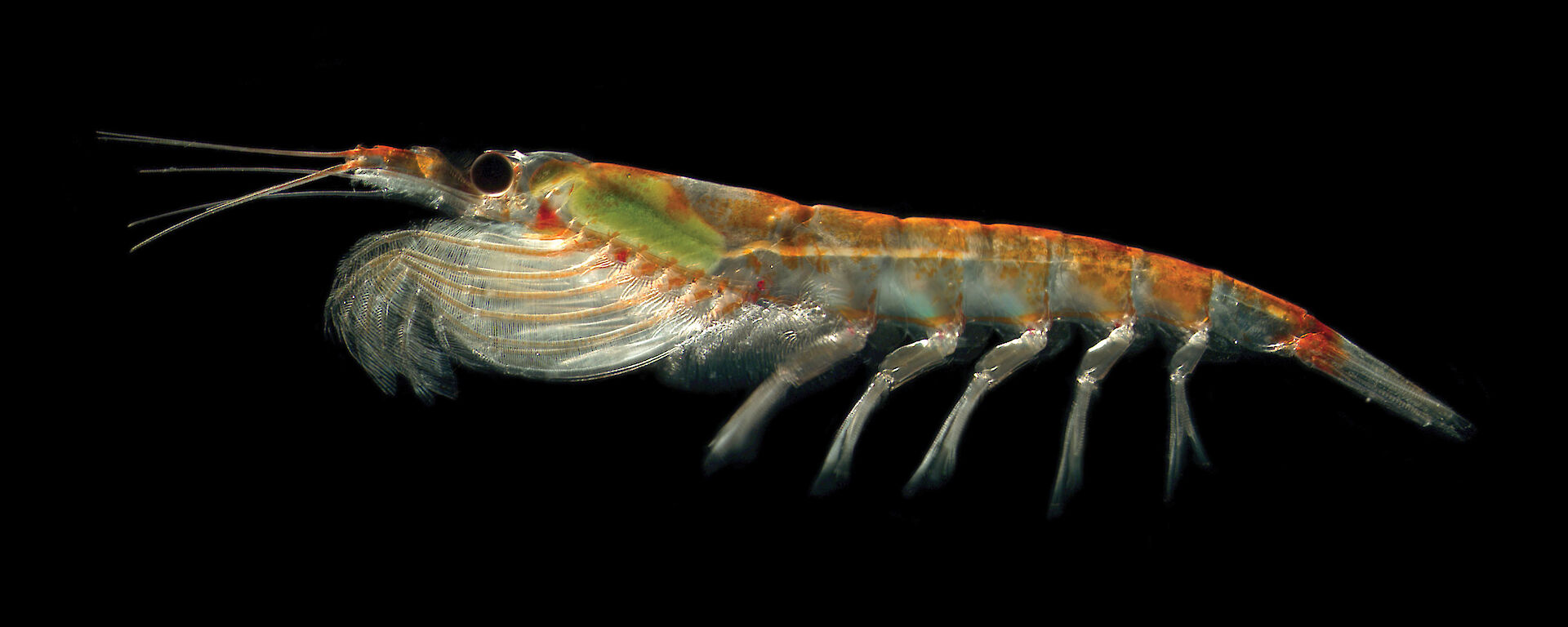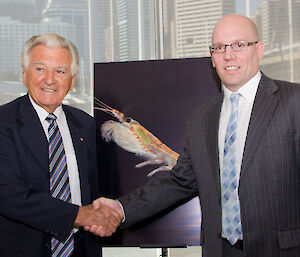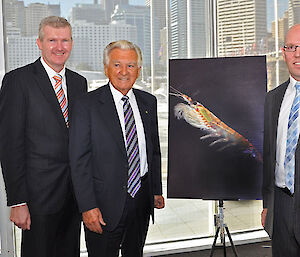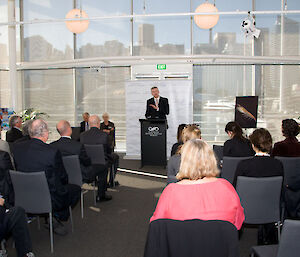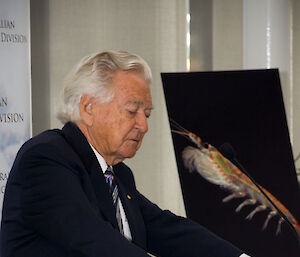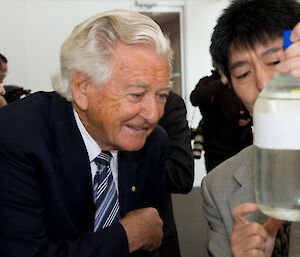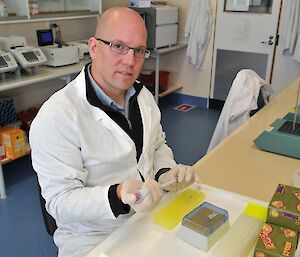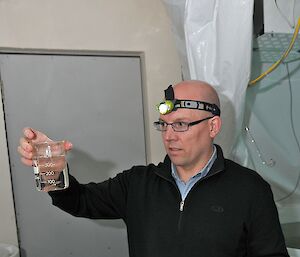The genome of one of the most successful species on Earth, Antarctic Krill, will be sequenced for the first time thanks to a new Australian Government $300,000 Antarctic Science Fellowship.
The inaugural R J L Hawke Post Doctoral Fellowship in Antarctic Environmental Science has been awarded to geneticist, Dr Bruce Deagle. The award honours former Prime Minister Bob Hawke’s contribution to protecting the frozen continent.
Dr Deagle will use modern genetic technologies to sequence the crustacean’s genome, as well as examine gene expression and how this relates to temperature and ocean acidification.
Federal Environment Minister, Tony Burke, said the project represents the cutting edge of science on a keystone species in the Southern Ocean.
“This prestigious three-year Fellowship aims to develop a new generation of scientists and build capability in Antarctic environmental science,” Mr Burke said
“Just as former Prime Minister Bob Hawke pushed the boundaries when campaigning to ban mineral exploration in Antarctica in the late 1980s, promoting the frozen and fragile continent as a natural reserve devoted to peace and science, Dr Deagle’s project will also be exploring new scientific horizons,” he said.
Krill is one of the most abundant species on the planet, with an estimated biomass in excess of 500 million tonnes.
It is the major consumer of photosynthetic organisms in the Southern Ocean and the key food source for most predators including whales, penguins, fish and seals.
Dr Deagle said krill is also increasingly being targeted by commercial fishermen and is now one of the world’s largest crustacean fisheries.
“Developing a deeper understanding of this keystone species through modern genetic technologies will allow us to identify likely physiological responses of krill to future environmental changes in the Southern Ocean,” Dr Deagle said.
Dr Deagle was announced as the recipient of the Fellowship at a ceremony, attended by Minister Burke and Former Prime Minister Bob Hawke, in Sydney today.
Dr Bruce Deagle Biography
Dr Bruce Deagle grew up on the west coast of Canada. He studied zoology as an undergraduate at the University of Western Ontario and then went on to complete a Master of Science at the University of Victoria. He worked for several years in a Canadian government fisheries genetics laboratory before moving to Australia in 2000. He worked for two years in a number of scientific roles in Hobart before starting his PhD studies in 2002. His PhD research was part of a University of Tasmania and the Australian Antarctic Division collaboration focusing on developing cutting edge molecular methods for studying the diet of wild animals with DNA found in their scats and he is considered a world leader in this field.
Dr Deagle has spent more than ten years applying genetic technologies to research on many aspects of animal ecology. His most recent postdoctoral position at the University of Victoria, Canada has been on the evolutionary biology of stickleback fish studied through broad scale genome analysis. He has had several other postdoctoral positions working on a variety of topics including diet analysis of Australian fur seals and identification of age-related genetic signals in whales.
R J L Hawke Post Doctoral Fellowship Background
- The R J L Hawke Post Doctoral Fellowship in Antarctic Environmental Science is awarded on the basis of scientific excellence for early career doctoral graduates to pursue policy-relevant science aligned to the Australian Antarctic Science Plan.
- The Fellowship was announced in 2009 to honour the former Prime Minister’s contribution to protecting the Antarctic environment.
- Mr Hawke led the international push in 1989 for the rejection of mining in Antarctica, instead promoting the frozen and fragile continent as a natural reserve devoted to peace and science. The Fellowship awarded in his honour aims to help develop a new generation of scientists and build capability in Antarctic environmental science.
- The Fellowship is an important component of the Australian Antarctic program’s new 10 year Antarctic Science Strategic Plan. The plan has four themes: Climate Processes and Change, Terrestrial Nearshore Ecosystems: Environmental Change and Conservation, Southern Ocean Ecosystems: Environmental Change and Conservation, Frontier Science. The Krill genome project is a key project within the Southern Ocean Ecosystems theme.
- The three year fellowship is valued at about $300,000 and the intent is to have Fellowships run in perpetuity.
- The Fellows are to be employed at the Australian Antarctic Division, based at Kingston in Tasmania.
- Applications for the inaugural Fellowship were advertised in July 2010 and were assessed through the Australian Public Service merit process.

